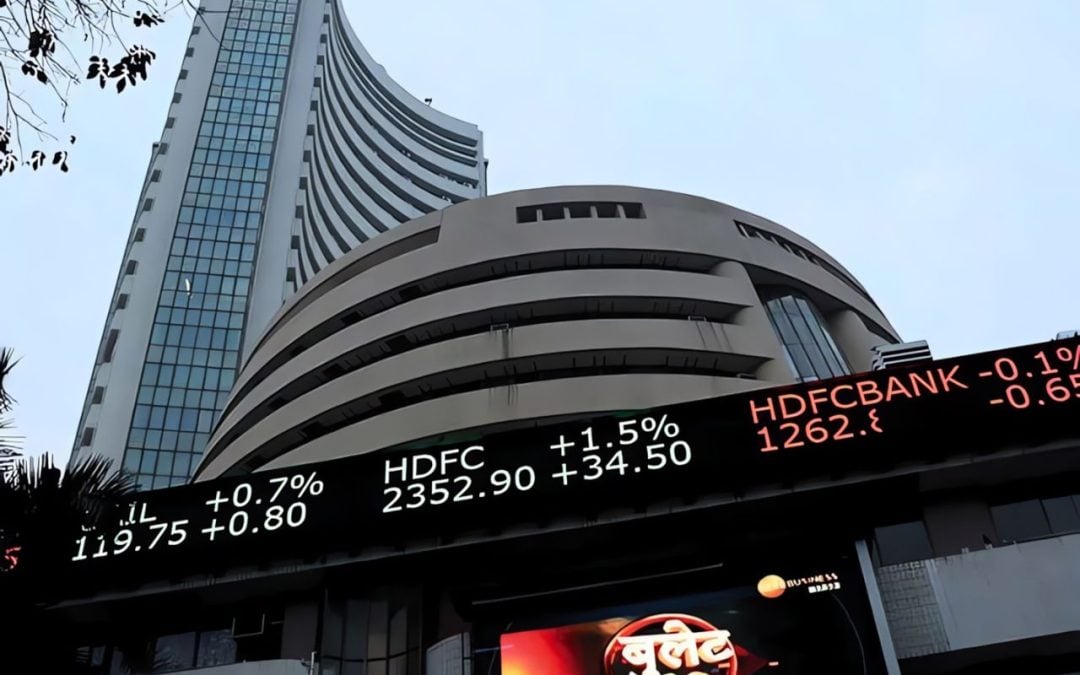SYNOPSIS: Construction company has delivered a strong financial performance in Q2 and H1 of FY26 with an outstanding YoY growth across revenue, EBITDA, and PAT. The company has also displayed exceptional momentum in the solar-powered pump division, by reinforcing its leadership under the PM KUSUM Scheme.
A company in the business of providing EPC service for solar-powered agricultural water pump systems has reported impressive results in the Q2 and H1 of FY26 and reflects upon its consistent operational strength and rising demand across the solar irrigation solutions business.
With a market cap of Rs 4070 Cr, the shares of GK Energy Ltd has recently witnessed its stock go up by 2.7 percent on Monday, by hitting an intraday high of Rs 204, while the previous close was at Rs 198.45.
What’s the News
GK Energy Ltd has achieved a 49.57 percent YoY rise in its quarterly revenue by going from Rs 270 Cr in Q2FY25 to Rs 358.5 Cr in Q2FY26, which is supported by a broad based growth in project execution and strong market traction. While the EBITDA for the same period increased by 39.37 percent YoY and demonstrates a stable cost control and operational efficiency. Moverover, the quarterly PAT climbed up from Rs 34 Cr in Q2FY25 to Rs 46.91 Cr in Q2FY26, a 37.33 percent growth on YoY basis , which continued the company’s profitability trajectory.
On a half-yearly basis, GK Energy’s performance has accelerated even further, with H1 FY26 revenue surging by 72.74 percent, out of the Rs 728.83 Cr in H1FY26 Rs 636.82 Cr came from the EPC side while Rs 92 Cr came from Trading of Solar cells (DCR) and other, this is being backed by higher EPC project volumes and a growing order book. EBITDA grew 65.95 percent, and PAT expanded 64.90 percent, indicating strong margin consistency and an expanding addressable market.
With the company’s stock reacting positively to the earnings announcement, we can believe that the investors have responded to the sustained growth outlook and sectoral opportunity for this business.
A key driver of GK Energy’s growth continues to be its solar-powered agricultural pump systems. The division has recorded a 26.32 percent YoY increase in the number of Solar Powered Pump Systems for the second quarter, while the first half of FY26 the same number has jumped by 50.77 percent, reinforcing the rising adoption of renewable-powered irrigation solutions in India.
Future Outlook
This kind of growth is only expected in a sector with massive untapped potential and a list of Government Schemes supporting the business. Despite 30 million plus irrigation pumps in India, only 2 percent of them are solar powered as of now. With over 118 million farmers nationwide and renewable energy penetration expected to grow quickly, the solar pump industry is expected to grow 8x and witness an exponential expansion.
Key Highlights
GK Energy, as the largest EPC provider under Component B of the PM-KUSUM Scheme (based on installations from January 1, 2022 to December 3, 2024), along with this scheme certain state specific scheme such as Magel Tyala Saur Krushi Pump Yojana in Maharashtra and Pradhan Mantri Krushak Mitra Surya Yojana in Madhya Pradesh have strategically positioned the firm to capture this high-growth opportunity in this spa.
Maharashtra has been leading the PM-KUSUM Component-B rollout with 43.6 percent of all sanctioned solar pump installations, and GK Energy ranks 2nd in this state with nearly 15 percent market share in the solar-powered agricultural pump systems.
Business Overview
Incorporated on October 14, 2008, GK Energy has established itself as one of India’s leading EPC partners for solar-powered agricultural water pump systems. Its leadership in execution, government-aligned projects, and its wide reach in the rural areas of the country sets itself for dominance in the market and a clearer long-term revenue visibility.
-Adithya Menon
Disclaimer

The views and investment tips expressed by investment experts/broking houses/rating agencies on tradebrains.in are their own, and not that of the website or its management. Investing in equities poses a risk of financial losses. Investors must therefore exercise due caution while investing or trading in stocks. Trade Brains Technologies Private Limited or the author are not liable for any losses caused as a result of the decision based on this article. Please consult your investment advisor before investing.


